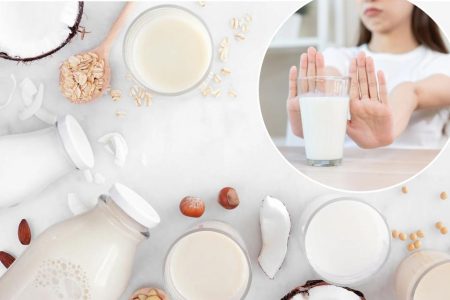Embracing Playfulness as a Path to Resilience: The Science of "Lemonading"
In a world filled with uncertainty and stress, a groundbreaking study reveals that embracing a playful approach to life can be a powerful tool for building resilience and improving coping skills. This concept, dubbed "lemonading," draws inspiration from the age-old adage, "When life gives you lemons, make lemonade." Researchers at Oregon State University have discovered that playfulness and resilience are deeply intertwined, with playful individuals exhibiting a unique ability to imagine and create positive experiences even in the face of adversity. According to study author Xiangyou "Sharon" Shen, "Our research shows that playfulness is not just about having fun; it’s a vital resource for navigating life’s challenges with optimism and creativity." This findings come at a time when chronic stress and uncertainty dominate many aspects of modern life, offering a refreshing perspective on how to thrive despite such difficulties.
The Study: How Playfulness Shaped Responses to the COVID-19 Pandemic
Shen and her team conducted their research during the second wave of the COVID-19 pandemic in February 2021, surveying 503 U.S. adults to explore how playfulness influenced their emotional and behavioral responses to the crisis. Participants were asked about their perceived risk of infection, concerns about the future, levels of social support, and strategies for coping with the pandemic. They also rated their playfulness on a scale measuring spontaneity, openness to fun, and motivation to seek out enjoyable activities. The researchers then divided the participants into four groups based on their levels of playfulness, ranging from highly playful to less playful individuals. The results were striking: those who scored high in playfulness were not only more optimistic about the future but also displayed greater resilience in the face of uncertainty.
Playful Individuals: Realistic Optimists with a Spotlight on Possibilities
One of the most fascinating insights from the study is that highly playful individuals were not naive or overly optimistic about the pandemic. Instead, they maintained a realistic understanding of the risks while simultaneously focusing on possibilities for growth and positive change. "Playful people didn’t ignore the challenges or downplay the severity of the situation," Shen explained. "They simply chose to shine their spotlight on the potential for good outcomes and creative solutions, even in dark times." For example, while they acknowledged the difficulties of the pandemic, they were more likely to envision a successful vaccine rollout and a return to normal life. This unique perspective allowed them to stay hopeful without losing touch with reality.
The Characteristics of Highly Playful People
The study also uncovered some notable characteristics of individuals who scored high in playfulness. These participants were more likely to feel active, joyful, and fully engaged in their daily lives, even when facing challenges like feelings of vulnerability and isolation. Shen attributes this to their flexibility and innovative problem-solving skills. "Highly playful people have a remarkable ability to reshape challenging situations, find creative substitutes for what they’ve lost, and see obstacles as opportunities for growth," she noted. While the study found no significant differences in factors like sex, race, education level, or income between playful and less playful groups, the most playful individuals tended to be slightly younger. This suggests that playfulness is not limited to specific demographics but is a mindset that can be cultivated at any stage of life.
Cultivating Playfulness: Practical Tips for a More Resilient You
So, how can you embrace a more playful approach to life? Shen offers several practical strategies to help you "lemonade" your way through challenges. Start by engaging in activities that spark joy and curiosity, whether it’s painting, playing a musical instrument, or exploring a new hobby. Be open to new experiences and experiment with creative ways to tackle routine tasks. Create opportunities for spontaneous, unstructured activities—like a sudden dance party or an impromptu picnic—and spend time with people who make you laugh. Additionally, try to bring a spirit of fun and flexibility to everyday moments, whether it’s through playful banter with a colleague or a humorous twist on a mundane chore. Even dedicating just five to 10 minutes a day to play—solo or shared—can make a significant difference. The key is to focus on the quality of your engagement, not just the activity itself.
The Broader Implications: Playfulness as a Vital Resource for Well-being
The findings of this study have far-reaching implications for our understanding of mental and emotional well-being, particularly in the face of chronic stress and uncertainty. Playfulness emerges as a powerful yet underappreciated resource for navigating life’s challenges with resilience and optimism. As Shen noted, "Playfulness is not just about having fun; it’s a mindset that helps us reframe difficulties and find opportunities for growth." While the study acknowledges that playfulness alone may not account for all the differences observed between participants, it highlights the importance of exploring this concept further across various domains of life. By embracing playfulness as a way of being, we can build stronger coping skills, foster creativity, and illuminate pathways to hope, even in the darkest of times. As we continue to navigate an increasingly complex and unpredictable world, "lemonading" offers a refreshing reminder that resilience and joy are always within reach—if we choose to see the possibilities.












